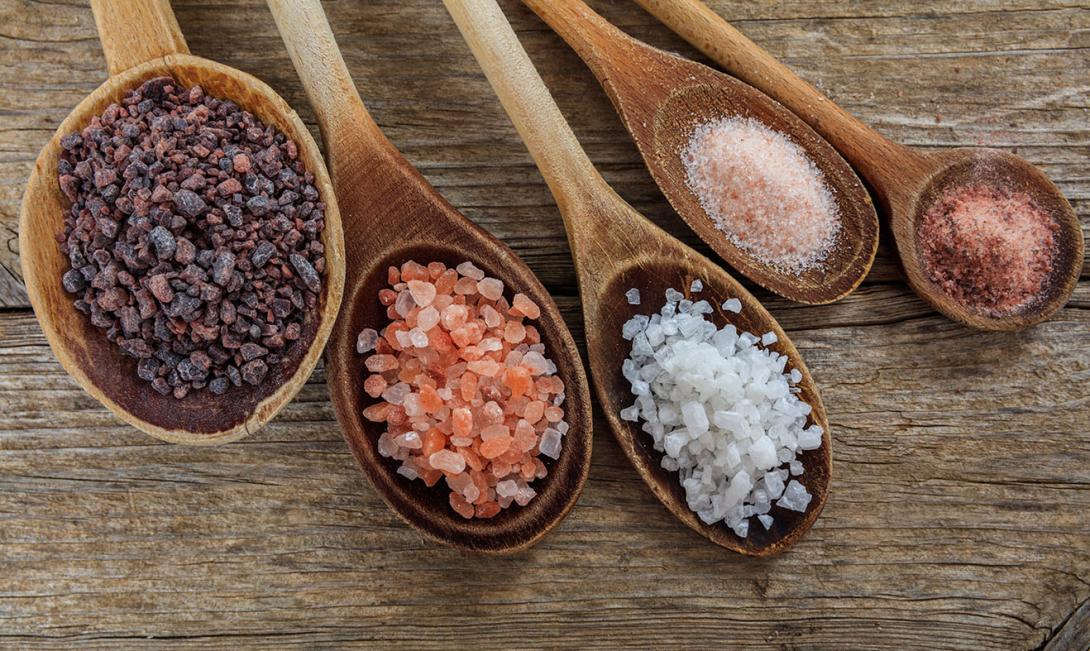
Do we eat too much salt?
Sodium is an essential element for body function, but eating too much of it causes many health problems.
“We need the food and drink industry to reduce the sodium levels in processed foods.” This declaration by the Director General of the WHO, Tedros Adhanom Ghebreyesus, is an advance for one of the next great debates related to food and health. And the fact is that every year there are an estimated 11 million deaths around the world are linked to a deficient diet, of which 3 million are attributed to a high sodium intake, according to the WHO.
So are we eating too much salt? The WHO recommends adults to eat less than 5 grams of salt a day, but this amount is are exceeded. It is estimated that around 70% of sodium intake in the western world comes from processed, ready-to-eat food, with just 8-20% derived from salt added at the table. Therefore, the answer to the question is affirmative and it is highly concerning.
“We have some high salt intake figures that we really should try to reduce. A large part of the population exceeds the recommended salt intake by 50%. We need 1.25 g of salt a day and we must try to keep our intake below this,” states Sònia Vallès, a dietician-nutritionist at the Nutrition Unit of SCIAS Hospital de Barcelona.
Sugar, calories or cholesterol are components that are well-known by the population and elements that they look at very carefully, but this is not the case when we talk about salt. “The population is not as aware of the problems that it could cause and there is not as much legislation when labelling products that could be harmful due to an excess of sodium. The food industry is not interested in reducing salt levels more, as sodium is a great preservative which has always been used. Another reason is that sodium is a flavour-enhancer and if legislation reduces salt levels a great deal, the flavour of the products could change completely and be rejected by the population,” Vallès explains.
Responsible consumption
Against this backdrop, the solution lies in education and responsible consumption. “Reducing the consumption of salt added to meals is a good idea. However, if used in moderation, salt makes all kinds of healthy foods tastier, such as soups, legumes and vegetables. Within certain limits, it can be included in our meals without too much worry,” the nutritionist adds. What is clear is that it is neither possible nor recommendable to eliminate salt from our diet, as “sodium is essential for maintaining several of the organism’s physiological processes and functions. Therefore, a deficiency of this mineral entails some risks, but eating too much of it in our diets is dangerous for our health,” the dietician-nutritionist from the Hospital de Barcelona indicates.
Diseases such as kidney failure, high blood pressure, obesity or cardiovascular problems require salt to be reduced in the daily diet. “According to the WHO, high blood pressure is a determining factor in the appearance of diseases and the consumption of sodium is one of the main factors involved in arterial hypertension (AHT). A high salt intake has also been linked to an increase in the risk of suffering from stomach cancer and osteoporosis. Therefore, reducing the amount of salt is beneficial regarding these and other diseases, but always following the indications of a healthcare professional,” Vallès explains.
The process is not simple. If we get used to eating with added salt from when we are very young, readapting our taste buds to ‘bland’ foods will be more complicated, but not impossible. “Each person needs a different amount of time to adapt, but we are talking about a few months. It could be conditioned by many factors and diseases,” Vallès indicates before stating that the prize for abandoning salt is, at times, surprising. “When you get used to eating less salt, you are likely to appreciate your food more, recognising a wider range of flavours,” Sònia Vallès concludes.
Other flavours
Less salt (put the saltcellar to one side)
Sònia Vallès indicates four actions that could help to reduce the daily salt intake:
- Give priority to eating fresh food. There is very little sodium in raw fruit and vegetables.
- Reduce the intake of foods with high added sodium content: processed or ultra-processed foods, cured meats and sausages, prepared, marinated and smoked meat products, industrial cakes and pastries, commercial sauces...
- If you eat snacks, opt for those without added salt, such as raw or just roasted dried fruit and nuts.
- Add spices or condiments that give flavour (garlic, pepper, basil, parsley, thyme...) instead of salt.
Healthy alternatives
Although the normal recommendation is always to get used to reducing the amount of salt, there are alternatives that help to enhance flavours without having to add extra salt. “There are some condiments, spices and aromatic herbs that bring flavour to dishes, with less or no sodium, such as pepper, oregano, thyme, parsley, garlic, powdered onion or lemon juice amongst others,” Vallès advises.
Foods to avoid
The dietician-nutritionist from the Hospital de Barcelona recommends eliminating some foods from your diet for people who wish to reduce the salt level in their meals. “The key lies in eliminating products such as the so-called packaged snacks that contain large amounts of salt. Amongst these are crisps, industrial cakes and pastries, salted dried fruit and nuts, commercial sauces, instant broth cubes… It is also a good idea to reduce the proportion of other processed and ultra-processed food categories, as well as marinated products, cured meats and sausages and tinned goods.”




